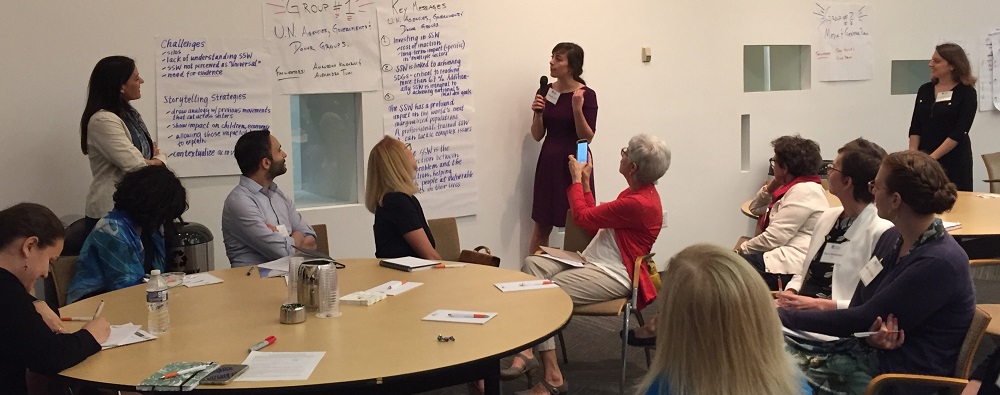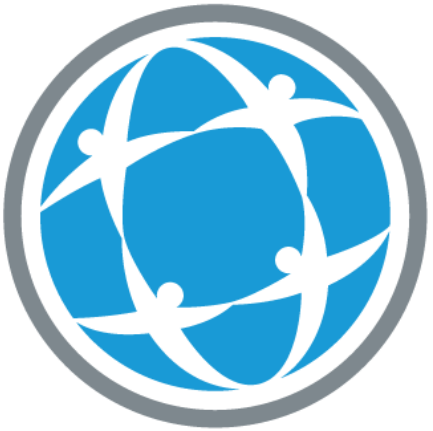The Global Social Service Workforce Alliance often convenes working groups and interest groups to further the strategic development of standards, activities and products that will advance efforts to strengthen the social service workforce.
Find information on the work of our current and previous groups below.
Stay tuned for information on other interest and working groups to join in the future.
Current Groups
The Alliance is currently convening the following groups:
Social Service Workforce in Care Reform Task Force
2023-2024
The Alliance is currently facilitating a Social Service Workforce in Care Reform Task Force, under the Transforming Children’s Care Collaborative Platform. The Task Force is derived of 40 members with experience in strengthening the social service workforce for the purposes of care reform and has the ultimate goal of developing a technical brief to support policy and decision makers to incorporate social service workforce strengthening in global commitments relevant to children’s rights and care. Stay tuned for the release of the technical brief later in 2024.
Social Service Workforce Costing and Ratios Working Groups
2023-2024
The Alliance is currently facilitating working groups, with relevant government partners and UNICEF counterparts, in four regions to discuss and exchange learning from their experience of testing and applying the Alliance’s Proposed Guidance on Developing Minimum Social Service Workforce Ratios and Proposed Guidance for Costing the Social Service Workforce. The four regions are Europe and Central Asia, East Asia and the Pacific, Eastern and Southern Africa, and Western and Central Africa. The groups are documenting and sharing country examples of use of ratios in workforce planning and of different approaches to workforce costing with the ultimate goal to inform revision and additions to the guidance. Contact us if interested in joining a working group.
Previous Groups
The Alliance has previously convened the following groups:
National Leaders Peer Learning Group
2020-2021
This group was conducted to facilitate peer-to-peer learning on innovative ways to strengthen national social service workforce systems over 8-10 months. The group consisted of monthly meetings and a series of documented learning activities with colleagues from ministries of social welfare/children’s services and social work professional associations from eight countries across East Africa and South East Asia, plus Georgia and Armenia.
Supervision Interest Group
2020
The Alliance’s Interest Group on Supervision worked to explore and define supervision as it relates to social service workforce strengthening. As a result of more than 60 members’ contributions, the group ultimately developed a Guidance Manual on Strengthening Supervision for the Social Service Workforce.
Advocacy and Outreach Interest Group
2019
The Alliance’s Interest Group on Advocacy and Outreach was developed to offer ideas and expertise toward increasing advocacy efforts for the social service workforce. Nearly 70 individuals ultimately worked to develop key messages for advocating the importance of the social service workforce to donors and policymakers, the general public and media, and other workforce members.
Case Management Interest Group
2017
The Alliance’s Case Management Interest Group worked to share information and experiences on case management and the role of the social service workforce. Members developed Core Concepts and Principles of Effective Case Management: Approaches for the Social Service Workforce as well as a Case Management Compendium intended to be useful to audiences of various workforce levels and organizations, representing practices from humanitarian and development perspectives across different regions.
Para Professionals Interest Group
2016
The Para Professional Interest Group explored and consolidated perspectives and key considerations concerning the role of para professional social service workers. Interest Group members produced Para Professionals in the Social Service Workforce: Guiding Principles, Functions and Competencies. This document includes guiding principles for developing programs and activities related to how para professionals can be trained, developed, deployed and supported, and a competency framework to provide program guidance, accountability and ultimately inform both training and supervision.
Building Evidence for Social Services Workforce Strengthening Interest Group
2016
The Building Evidence for Social Service Workforce Strengthening Interest Group developed The Evidence Base on the Social Service Workforce: Current Knowledge, Gaps and Future Research Direction along with The Evidence Matrix for the Social Service Workforce. These documents consolidate and review the current state of evidence on strengthening the social service workforce around the world to identify the most critical gaps and priority research needs pertinent to strengthening the workforce.



